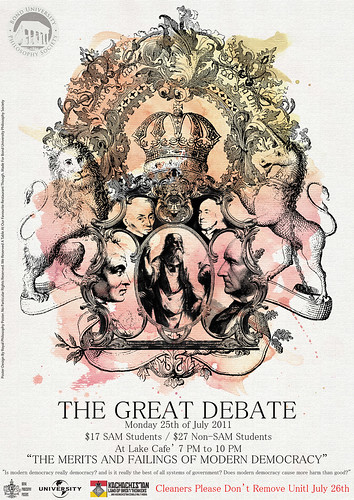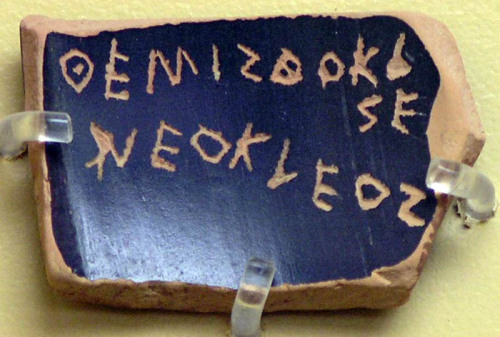H ere is the final instalment of my talk to the Bond University Philosophical Society the other night. I must thank my hosts for a delightful evening.
ere is the final instalment of my talk to the Bond University Philosophical Society the other night. I must thank my hosts for a delightful evening.
The subject was, “Is modern democracy really democracy?,” “Is democracy the best of all systems of government?” and “Does it do more harm than good?.” It seemed like a stacked deck to me at the time:
So here we are, at our dinner hour, considering if this political model, which has been shaped around our dramatic social evolution of nearly two modern centuries, is our best option. I think this can be dealt with quite simply with the droll but weighty observation of Winston Churchill:
“It has been said that democracy is the worst form of government except all the others that have been tried.”And we have tried many. It is hard to conceive how the alternatives, no matter how thoughtfully framed or benign, are not arguably some form of tyranny by modern standards, irrespective of legality.
So what are the merits of “democracy?”
Democracy has two essential virtues; that it is “just” in the sense of the “common good,” a justice that varies with the appropriateness of the contract and the wisdom and integrity of its executors. And also that it allows the majority the “arbitrary and reckless” opportunity to alter course, indeed reverse themselves, at some point in the future.
I can always tell when folks have been reading too much Plato.

